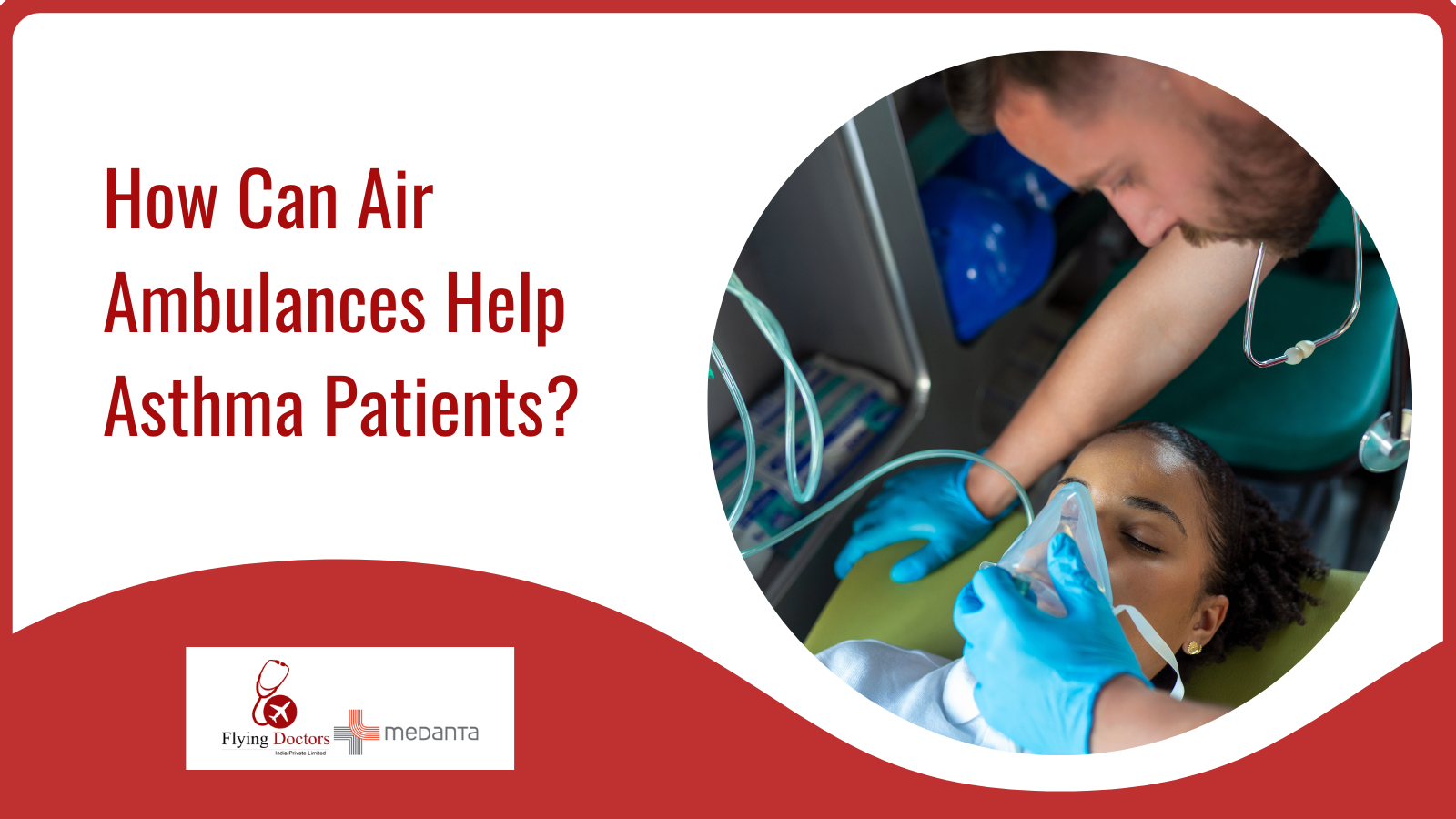Asthma is a chronic condition, meaning it lasts for a long period of time and can cause a variety of symptoms, from coughing and wheezing to chest tightness and shortness of breath. According to INSEARCH, the total burden of asthma in India is 34.3 million, accounting for 13.09% of the global burden.
Asthma can be serious and can even be life-threatening if not managed properly. Hence, it’s important to seek immediate medical care for people who have suffered a severe asthma attack.
In this blog, we will discuss what asthma is, the symptoms and early signs of asthma, the main cause, and how paramedics treat asthma in an air ambulance.
What Is Asthma?
Asthma is a condition that affects your lungs and airways, making it difficult to breathe. Your airways are tubes that run from your nose and mouth to your lungs. When you have asthma, the inside of these airways become very narrow and swollen, making them difficult to breathe through.
Coughing: This can be dry or productive, meaning it produces mucus
Wheezing: A high-pitched whistling sound when you breathe
Chest tightness: A feeling of pressure or tightness in your chest
Shortness of breath: Feeling as if you can’t get enough air
Fatigue: Feeling tired or weak
Early Signs of Asthma
Asthma can be difficult to diagnose as the symptoms can be similar to other conditions such as allergies or a cold. It is important to be aware of the early signs of asthma so that you can seek treatment as soon as possible.
Early signs of asthma can include:
- Frequent coughing, especially at night or after exercise
- Difficulty breathing or feeling out of breath
- Wheezing or whistling when you breathe
- Tightness in your chest
- Fatigue
- Shortness of breath
If you or someone you know is experiencing any of these symptoms, it is important to seek medical advice as soon as possible.
What is the main cause of Asthma?
The exact cause of asthma is unknown, however, it is thought to be caused by a combination of environmental and genetic factors. Environmental factors that can trigger asthma include air pollution, dust, pollen, mould, and pet dander. Genetics can also play a role, with some people being more likely to develop asthma if they have a family history of the condition.
Other factors that can increase your risk of developing asthma include smoking, being overweight, and being exposed to certain chemicals or pollutants.
How Paramedics Treat Asthma in an Air Ambulance
Air ambulances are equipped with advanced medical equipment and a team of experienced paramedics, who are trained to provide specialized care for those suffering from an asthma attacks. On board the air ambulance, the paramedics will be able to assess the patient’s condition and provide oxygen therapy, as well as administer medications to help control the symptoms and reduce inflammation in the airways.
The paramedics will also be able to monitor the patient’s vital signs to ensure that the asthma attack is being managed properly. In some cases, they may even be able to provide an inhaler or nebulizer to help relieve the symptoms.
Conclusion
Asthma is a condition that can be serious and can even be life-threatening if not managed properly. It is important to be aware of the early signs of asthma and seek medical help as soon as possible. In severe cases, an air ambulance may be needed to transport the person to the hospital.
Contact Flying Doctors India for an Immediate Transfer of an Asthma Patient
If you or someone you know is suffering from an asthma emergency, don’t hesitate to get help. Flying Doctors India is a leading provider of air ambulance services, offering a safe and reliable way to get the medical help you need in an emergency. Contact us today to learn more about our services and how we can help you in an asthma emergency.

